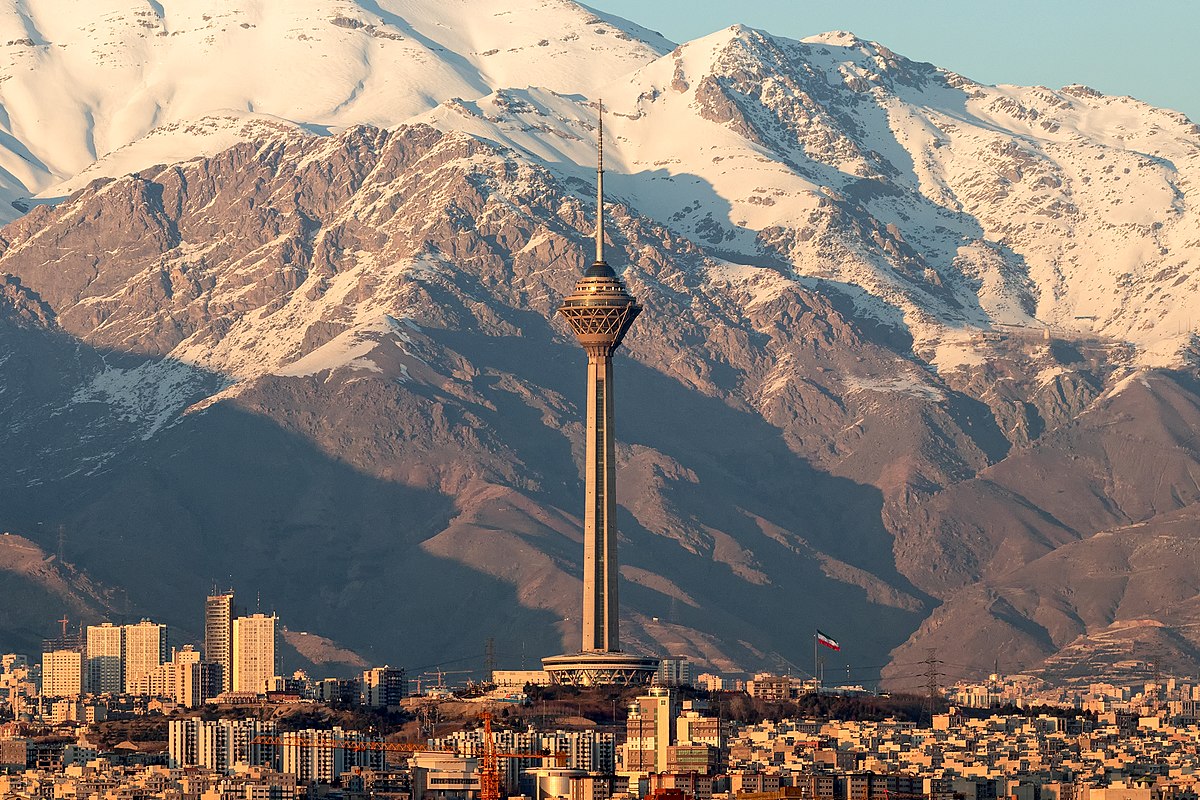In Vienna, at the end of November, the indirect talks to revive the Joint Comprehensive Plan of Action (JCPOA) will resume. Of the original P5+1, five states remain within the nuclear deal: Iran, Russia, China, France, the United Kingdom, and Germany. Of course, the missing country is the United States. The JCPOA was inked during the Barack Obama administration. It is seen as a bright spot—a true accomplishment—on a foreign affairs record that was otherwise bloody, imperialist, often treasonous, and even genocidal. President Joe Biden and his team truly do have an opportunity to, like Obama before them, remove from the table the neocons’ long sought war with Iran. However, Biden’s hawkish, arguably Trumpian, Iran policy promises nothing good.
Former President Donald Trump, under the influence of the late Zionist billionaire Sheldon Adelson’s money and ilk, withdrew from the agreement and launched the “maximum pressure” campaign wreaking havoc on the Iranian economy. During Biden’s reign, the Iranians have made considerable concessions. They have stayed in the deal and agreed to come to the negotiation table absent prior sanctions relief. They refused to do so during the previous administration.
The sanctions regime is devastating the Iranian people by devaluing their currency, drastically increasing the costs of living, driving up the prices of housing, automobiles, and staple foods. Bipartisan American policies have made such necessities prohibitively expensive. Obtaining many lifesaving medicines is difficult or impossible. Trump and Biden’s “maximum pressure” policies have hit hardest people with cancers, multiple sclerosis, hemophilia, HIV/AIDS, diabetes, and epilepsy. The intent of sanctions is to cause severe economic pain to the country’s average men, women, and children. In economic warfare, killing people by depriving them of desperately needed medication is a feature not an unintended consequence. As a result of Uncle Sam’s sanctions, it is estimated that 100,000 Venezuelans have died. Americans will hang their heads in shame when Iran’s sanctions caused excess death rates are finally exposed. In 2020, the Trump administration blocked the Iranians’ $5 billion International Monetary Fund (IMF) loan. Tehran requested the loan to help combat the Coronavirus. Other countries received these loans, though the IMF denied Caraccas’ request as well, revealing the obvious political motivations involved. At the U.N., Iran’s new President Ebrahim Raisi called U.S. sanctions during the Covid-19 pandemic “crimes against humanity.”
As Associated Press reported,
U.S. sanctions, while allowing for humanitarian aid, have made international purchases of medicine and equipment much more difficult. Iran has endured multiple waves of the coronavirus, with nearly 118,000 deaths recorded—the highest in the region.
Human Rights Watch has published studies demonstrating how American sanctions have frightened away foreign companies and banks from facilitating humanitarian trade including “vital medicines and medical equipment.”
A group of U.N. experts recently warned Iran is experiencing medical shortages because “[m]any banks and businesses, including pharmaceutical and medical companies around the world, over-comply with sanctions out of fear of potential penalties”
But American policymakers will proclaim “the price is worth it.”
During the initial round of talks in Vienna, Biden refused to lift all of Trump’s sanctions forcing Tehran to negotiate limited sanctions relief, another major concession. Throughout the first round of talks, Israel attacked Iran’s civilian infrastructure, ships, and allies. It has been revealed that Biden’s team made clear during this first round of talks that they will not commit to the JCPOA for his term’s duration, even assuming an initial American return to the deal and Iran’s full compliance.
Biden and his men have long intended to use Washington’s perceived Trumpian sanctions “leverage,” and the threat of sanctions reimposition, to force Iran to negotiate a “longer and stronger deal.” They also seek concessions from Tehran related to their ballistic missile program and their support for their regional allies.
From Iran’s perspective, both of these are nonstarters. Tehran’s network of allies across the Middle East provides them critical breathing room as the Israelis and their neocon amen corner regularly threaten war. The Americans would foolishly allow themselves to be dragged into such a war, if not take the lead. However, what makes the American axis hesitate most is Iran’s latent nuclear deterrent and their missiles. More immediately, Iran maintains countless asymmetrical capabilities in the form of friends within striking distance of myriad U.S. troops, allies, assets, and bases.
Iran’s ballistic missiles are essential to their national security. According to a recent survey conducted by the Iran Poll and the University of Maryland’s Center for International and Security Studies, the Iranians are well aware of this and overwhelmingly support their government’s missile program.
As foreign policy expert Jim Lobe has written,
Seven out of 10 respondents, however, defended Iran’s advanced ballistic missile program—a key concern of the United States, Israel, and Iran’s Persian Gulf Arab neighbors—as “very important.” Another 20 percent said it was “somewhat important.”
In an attempted regime change, Saddam Hussein’s Iraq, backed by Jimmy Carter and then Ronald Regan, invaded Iran. As Scott Horton, director of The Libertarian Institute, details in his book Enough Already: Time to End the War on Terrorism, this led to a brutal decade long war that saw a million people killed, split about evenly between the Iraqis and the Iranians. With the CIA’s satellite intelligence and Washington’s European allies’ chemical weapons purchased with U.S. taxpayer money, Hussein killed tens of thousands of Iranian conscripts with “mustard and nerve gasses such as sarin and tabun.”
In this century, Iran witnessed illegal, protracted American invasions and occupations both in Iraq, on its western border, and Afghanistan, on its eastern border. These conflicts saw well over a million people killed.
In a savage covert war against Iran’s close ally Damascus, the CIA, Israel, Saudi Arabia, and their friends backed al Qaeda and their affiliates, at least half a million people were killed. Israel still bombs the country weekly while the Syrians themselves remain crushed under U.S. sanctions and occupation. Antony Blinken, America’s top diplomat, has declared Washington is resolutely opposed to Syria’s reconstruction, which the bipartisan Caesar Act sanctions designedly prevent. The American military control Syria’s oil and, due to the sanctions, the U.N. says a majority of the population is facing starvation.
In the face of this recent history, the Iranians are unlikely to consider ceding their leverage, their expanded civilian nuclear program, albeit monitored and safeguarded by the International Atomic Energy Agency (IAEA). To return to full compliance with the JCPOA’s strict limits only to be sanctioned again and threatened with war if they refuse disarmament? Iran may calculate that the risks involved in returning to full compliance under the JCPOA—in exchange for Washington’s empty promises nobody believes – are worse than the status quo.
Additionally, if the U.S. rejoins the JCPOA, the hawks ability to inflict economic damage will be greatly enhanced. As Trita Parsi explains,
These considerations have caused Tehran to view a U.S. return to the JCPOA as eminently risky, not just because of the unreliability of the sanctions relief but also fears that the JCPOA will collapse over Washington’s desire for a longer and stronger deal. If so, with the United States back in the deal, Washington will have a greater ability to punish Iran economically, including the use of the snapback mechanism in the Security Council to automatically reimpose all JCPOA sanctions on Iran, which Trump tried but failed to do.
Making the deal “longer and stronger” necessarily means Iran will probably neither be able to normalize their nuclear program, as was intended under the JCPOA, nor open their economy to Western investment in any substantiative way. Businesses will not take the investment risk with the ever present threat of the American Empire reimposing sanctions. This is a substantial liability, be that under Biden or the next Republican administration.
Iran is in an extremely difficult situation. If the Americans do not return to the JCPOA, Washington can still work with the Israelis to stoke war telling the big lie that Iran is seeking nuclear weapons. Iran would still, as they have for decades, have an IAEA monitored program under the Non-Proliferation Treaty (NPT). However, some experts suspect the hawks may be trying to goad Iran into leaving the NPT. This may be accomplished by a continued refusal to lift sanctions, cornering Tehran into a vulnerable position surrounded by enemies, armed to the teeth, constantly threatening to attack. This would make a region wide war practically inevitable.
At the end of last month, after Tehran announced they were ready to return to the negotiation table, Washington levied yet more sanctions. Blinken, the Biden administration’s Rent-A-Pompeo, again hinted at a coming war with Iran and ominously repeated what appears to be his favorite slogan these days “every option is on the table.” In the midst of this U.S. aggression, an American B1-B bomber circumnavigated the Arabian Peninsula menacing Iran. At different points, the bomber was accompanied by Israeli, Egyptian, and Saudi Arabian warplanes.
Although Iran seems to be warming ties with the Saudis. Since 2020, talks between the two states, largely brokered by Baghdad, have been ongoing. Iran recently resumed exports to its longtime rival. Riyadh has said it will even support the JCPOA if it prevents Iran from gaining nuclear weapons. According to a report in Middle East Eye, the Saudis have considered helping Tehran skirt Washington’s sanctions by selling Iranian oil. There is also discussion of reestablishing diplomatic ties and reopening consulates.
Despite Trump and Biden’s “maximum pressure,” Iran has been both turning east and working with other sanctioned countries to give their economy a boost.
As Ted Snider, columnist at Antiwar.com, has written,
No longer able to trade with America or its allies, Iran has turned to other sanctioned nations as partners. Iran recently signed a twenty-five year strategic and economic partnership with China that is worth $400 billion. They have signed an agreement with Russia for an advanced satellite system. Iran has also become a permanent member of the Shanghai Cooperation Organisation. And just this month, Iran announced that they will sign a 20 year cooperation accord with fellow member of the sanction community Venezuela.
These are welcome developments but the Iranian people should no longer live under sanctions. Nor should they live in fear of an attack by the Americans, the Israelis, and their allied Gulf Arab dictatorships. Incidentally, eyeing Iran, the U.S., Israel, the United Arab Emirates, and Bahrain are currently holding joint military drills in the Red Sea. As these exercises reveal, Trump’s faux peace deals, the Abraham Accords are a thinly veiled U.S. and Israel led military buildup against the Islamic Republic.
As Dave DeCamp, Antiwar.com news editor, has reported,
One purpose of the US-brokered normalization deals was to further isolate Iran in the region, and the Red Sea exercises are a clear message to Tehran. Israeli Prime Minister Naftali Bennett reportedly floated the idea of creating an anti-Iran NATO-style alliance that includes Israel and the Gulf states in his meeting with President Biden back in August.
The drills also come after the US formally moved Israel under US Central Command’s area of operations. Previously, Israel fell under US European Command because so many of Washington’s Arab allies did not recognize Israel. The Trump administration ordered the change in January, and Israel sent a representative to CENTCOM headquarters in October, solidifying the move.
It does not have to be this way. Iran never had a nuclear weapons program and never sought one. The deal is only necessary to stop the hawks’ coveted war. Tehran does not threaten the U.S., nor do they threaten their former “best friend” Tel Aviv. Apartheid Israel and the American military industrial complex both required an enemy after the Cold War to justify stealing billions of dollars from U.S. taxpayers every year.
The Iranian boogeyman schtick is a racket propping up the military’s wildly unpopular, indefinite Middle East presence. It is a convenient excuse to ensure the continued flow of the Pentagon’s welfare checks and America’s illegal military aid to Tel Aviv, a clandestine nuclear weapons power.
As Benjamin Netanyahu would say, “it’s absurd.”
Iran’s Foreign Ministry has put forward three utterly reasonable conditions for the coming Vienna talks: the U.S. must take responsibility for leaving the JCPOA, lift all sanctions imposed after Washington’s illegal withdrawal, and guarantee another American administration will not exit the JCPOA. The American people must insist their government honor these conditions and return to the 2015 deal.
But better than that, we should stop falling for this tired scheme altogether. Demand Washington lift all sanctions.
Americans can and must live up to Ron Paul’s foreign policy of peace “the very opposite of isolation: diplomacy, free trade, and free travel.”
Let us finally trade and make friends with 80 million Iranians.








